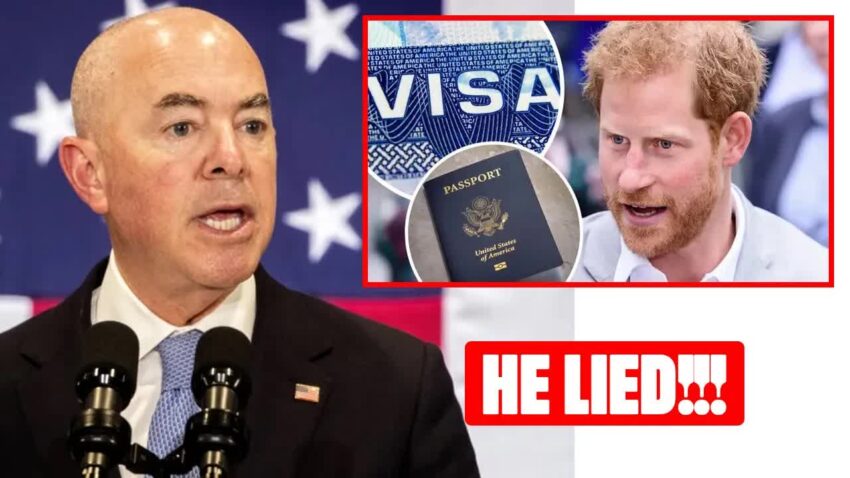The Department of Homeland Security (DHS) has been denied its request for summary judgment in the visa case involving Prince Harry, according to a video on the Royal Grift YouTube channel.
The Heritage Foundation, a conservative think tank, will now have its day in court for an oral argument scheduled for February 23, 2024, at 2:30 pm.
Previously, lawyers representing DHS argued that Harry’s visa application should not be disclosed as it contains private personal information regarding his past drug use.
In his memoir, the Duke of Sussex mentioned using cocaine, marijuana, and psychedelic mushrooms, which prompted the Heritage Foundation to question why he was allowed into the United States in 2020.
The think tank filed a lawsuit against DHS after their Freedom of Information Act request was rejected, claiming that the release of Harry’s U.S. visa application was of immense public interest.
However, lawyers representing DHS argued that the Heritage Foundation had failed to demonstrate any possible government misconduct or public interest that would outweigh Prince Harry’s privacy rights.
DHS also stated that despite being a public official in the UK, Prince Harry does not hold the same status in the United States.
The department informed the court that it had already provided the maximum amount of information it could without revealing Harry’s immigration status.
The Heritage Foundation’s lawsuit is based on the argument that U.S. law generally deems individuals with a history of drug use inadmissible for entry into the country.
In response, DHS emphasized that a person’s immigration information, like health, financial, or employment information, is considered private and personal.
Lawyer John Bardo, representing DHS, stated that there is no publicly available information indicating that Prince Harry has ever been convicted of a drug-related offense.
He dismissed the Heritage Foundation’s suggestion of wrongdoing by the U.S. government as purely speculative.
This development comes shortly after the Duke was given permission to proceed with his legal action in the UK against Associated Newspapers.
Harry alleges that the publisher engaged in unlawful activities such as hiring private investigators, placing listening devices in cars, obtaining private records, and accessing and recording phone conversations.
The Department of Homeland Security’s efforts to protect Prince Harry, whom they view as a self-confessed drug user and lawbreaker, have raised concerns.
They argue that if Harry lied on his visa application about his drug use or if he was allowed into the country despite the truth, it would be a violation of U.S. law and he should be deported.
If DHS succeeds in protecting Harry, it could set a precedent for future cases involving individuals seeking entry at the borders.
This case has the potential to become a landmark case with far-reaching implications.
Individuals seeking entry into the United States may cite this case in the future if DHS successfully conceals the truth.
It remains to be seen how Harry will respond to these developments.
It is possible that he may seek support from his royal family ties to navigate the situation.
